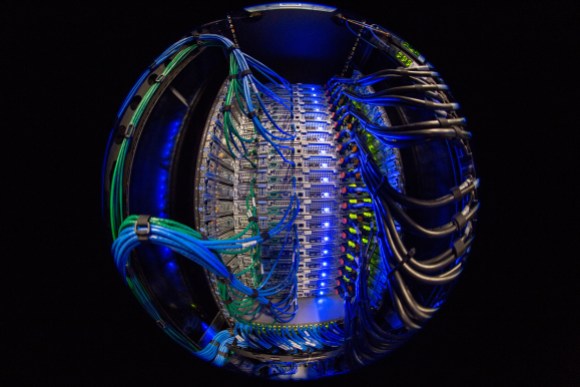
Last week, the Federal Communications Commission (FCC) published a proposal to deregulate Internet Service Providers (ISPs) and to eliminate the U.S. net neutrality rules. After the agency announced its vision for the internet earlier this year, we submitted a letter to the Commission, urging it to keep the Open Internet rules in place. Now that the drastic extent of this sweeping deregulation has been communicated, we want to explain why net neutrality matters for Wikipedia and for free knowledge in general.
Net neutrality is essential to the preservation of an open internet for the United States and around the world. The FCC’s net neutrality rules protect internet users’ access to the internet’s wealth of information and their ability to collaborate via the internet by specifically prohibiting ISPs from discriminating among websites or applications by blocking or slowing some, or prioritizing traffic from others in exchange for a fee. They help ensure that everyone with an internet connection can connect to the services, applications, and content of their choice and that ISPs do not abuse their market power or local monopoly position to restrict the free and open flow of information. This openness is an important prerequisite for the Wikimedia Foundation to further its mission to “empower and engage people to collect and develop educational content and to share it globally”—Wikipedia and the other Wikimedia projects are built by thousands of volunteers who collaborate to edit articles in real time and contribute and curate images and data. To do so, they need to be able to freely and equally connect to the Wikimedia websites. In addition, they need to able to read original and verifiable sources online with information about the topic to be included in Wikipedia.
We believe that everyone should be able to freely access knowledge and that this should not be a question of affluence, neither in the United States nor in the rest of the world. To ensure that all internet users can participate in knowledge and access Wikipedia as well as other sources of information, we support rules that keep the internet open. Net neutrality is essential to prevent a new digital divide from opening between those internet users who can afford to pay to access all information online and those who cannot afford to do so. The FCC’s current net neutrality rules help make sure that every internet user in the United States can access any information found online. If these protections are rolled back and ISPs are allowed to block or throttle traffic from websites and applications, not all subscribers may be able to afford access to content they have today.
ISPs should not decide what their subscribers see online. The Indian telecoms regulator TRAI recognizes this in the Recommendations on Net Neutrality, which it released this week. Net neutrality creates a level playing field for diverse content providers and a plurality of voices online. New content providers, especially non-profit projects and maybe even the next Wikipedia, depend on rules against blocking, throttling, and paid prioritization to be able to offer their services to a wide audience via the internet. A roll-back of the current net neutrality rules would negatively affect many people’s ability to find the information they seek online and will instead create a new digital divide. It would also set a bad example for regulators across the world at a time when people from developing regions are coming online at impressive rates. We believe that everyone should be able to participate in knowledge, on Wikipedia and elsewhere on the internet. Strong protections for net neutrality are an essential part of this vision and we urge the FCC to keep the existing framework in place.
Wikimedia Foundation
You can read our letter to the FCC, join policy conversations on our public policy mailing list, and follow our work at @wikimediapolicy.
You can also read this blog post on Medium.

Can you help us translate this article?
In order for this article to reach as many people as possible we would like your help. Can you translate this article to get the message out?
Start translation